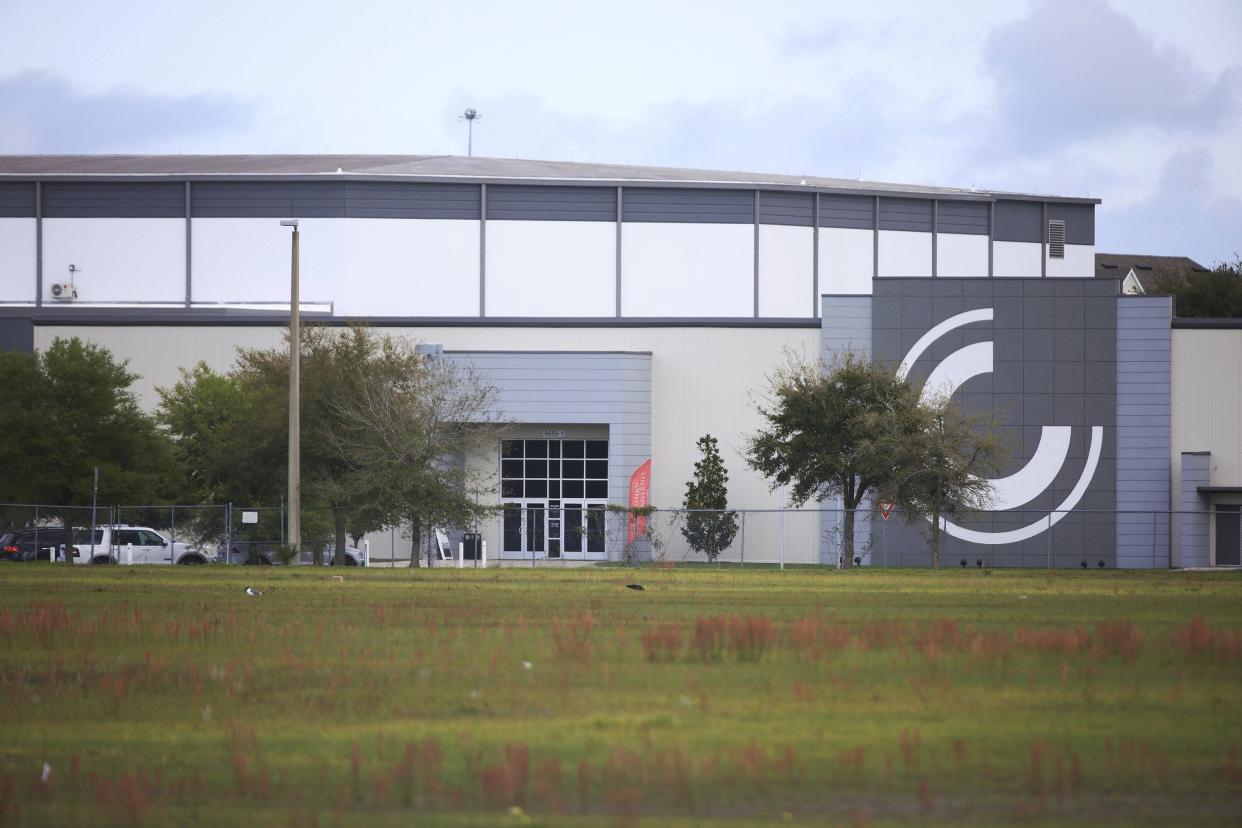Celebration Church hit 'brink of insolvency,' says report claiming fraud by founder Weems

Celebration Church founder Stovall Weems “violated the law by … committing fraud, [and] unjustly enriching himself at the expense of the church,” Celebration’s lawyers charged in a report released Monday.
The report said the Jacksonville minister, who was suspended by the megachurch’s trustees in January, “brought Celebration to the brink of insolvency” while coloring his leadership with arrogance, entitlement, greed and other character flaws. It said Weems also failed to follow the fiduciary duties a senior pastor like him owes to his church.
The combined costs of salary, travel, expense accounts and staff to tend to Weems and his wife, Kerri, eventually accounted for about a tenth of the revenue for Celebration, said the report that described the church as having five campuses and 3,745 active members.
Through a spokesperson, Weems answered that the charges were “concocted by the trustees and their lawyer as a character assassination without real basis.”
Weems, who resigned this month from the church he’s suing, continued: “… As I have said all along, I have nothing to hide. That has not changed. I shall continue a righteous path with a new ministry despite these shameful efforts.”
'At stake is control of the church': Celebration Church, founder Stovall Weems embroiled in legal dispute
The fallout: Celebration Church founder Stovall Weems quits; vows to 'continue our ministry elsewhere'

A statement posted on the church’s website said the report’s findings would be forwarded to authorities to decide whether to file criminal charges, one of a series of steps the lawyers recommended and the trustees approved.
The report said Weems made dangerous solo decisions about church finances that saddled Celebration with serious debts.
After the church received a $1.1 million loan through the federal Paycheck Protection Program last year, the report said, Weems directed the purchase of $500,000 worth of a digital security called TurnCoin. Pandemic-era PPP loans were designed for businesses to keep employees on payrolls or to cover a limited list of other expenses, like rent and mortgage payments.
PPP loans are forgivable when they’re used on authorized expenses, but the report said church financial records indicate none of the loan money was spent on authorized uses.
In March, a Weems spokesperson told the Times-Union that “the TurnCoin investment did not utilize any of the church’s PPP funds.”
The spokesperson said then that the TurnCoin purchase was part of creating a retirement fund for longtime employees of the church, which opened in 1998.
In addition to $100,000 invested in TurnCoin for Celebration, the report said investments were made on behalf of two church spinoff organizations, Honey Lake Farms and AWKNG, as well as unrelated church ministry in Nevada.
PPP money: Who in Florida got Paycheck Protection Program loans during the pandemic?

The report argued that Weems received a financial benefit from the digital security buys.
“Weems bundled these funds with others so that he could qualify as a ‘legacy investor’ in TurnCoin,” said the report from attorneys at the Nelson Mullins law firm. “Legacy investors were entitled to be paid back before other investors and were entitled to 10% interest on their investment.”
The report said Weems had been turned down when he approached a fellow-pastor and friend, apparently from the Nevada ministry, about investing in TurnCoin, so he told Celebration’s accounting staff to move $100,000 to the outside ministry for a revival. The pastor of that ministry later told Celebration staff that Weems had told him to spend the money on TurnCoin as part of Weems’s legacy investment. The money hasn’t been used for a revival, the report said.
Besides the digital currency deals, the report flagged the fact that the church paid just under $1.3 million for a parsonage on Black Hammock Island in June 2021, a 50-percent markup on the price from the time a company Weems controlled bought it just four months earlier.
The report also said Weems had been involved in “fraudulent mischaracterization” when he applied for a bank loan for Honey Lake Farms Inc. The report said Weems filed a financial statement wrongly listing a $1.4 million loan from the church as a debt that was owed to Honey Lake Farms, and that when a bank loan officer talked to the church about it, Weems told church accountants to simply write off the money the church was owed. Weems did that without talking to anyone on his board, the report said.
“The fraudulent manipulation of … financial statements and unauthorized debt forgiveness in connection with a loan application violates Florida and federal law,” the report said.
The report said Weems made a series of financial decisions without talking to his board at the same time that the church’s finances suffered. Between October 2020 and March or April last year, the church’s cash balance fell from $9 million to $2 million, the report said.
The report is a public explanation of a situation the church initially avoided publicizing after Weems was suspended.
Appended to that report were the recommendations for actions, which beside accepting Weems’s resignation and forwarding the report to law-enforcement agencies, included removing the Weemses from any position of authority at the church, Honey Lake Farms, Honey Lake Clinic or AWKNG; requiring a series of organizations to repay loans by the church; and removing the Weemses from the parsonage to sell it.
This article originally appeared on Florida Times-Union: Celebration Church founder Stovall Weems committed fraud, report says

